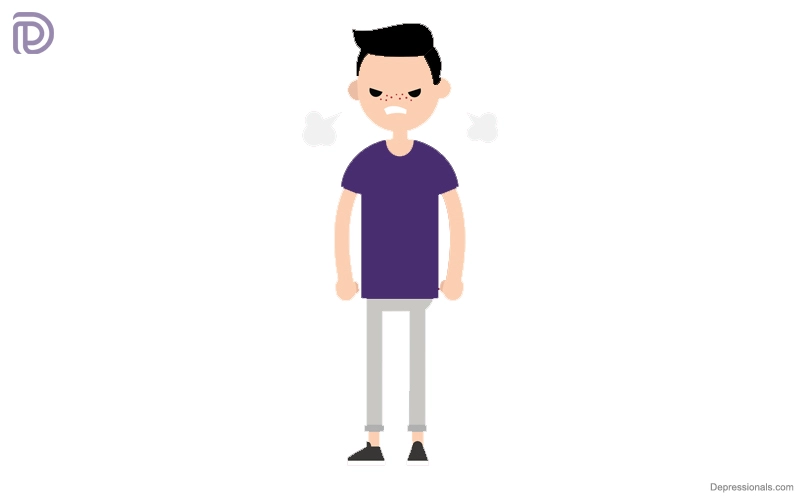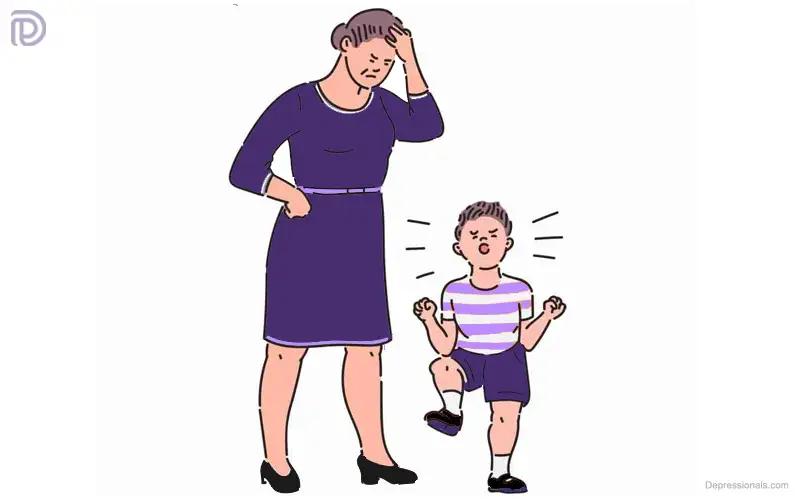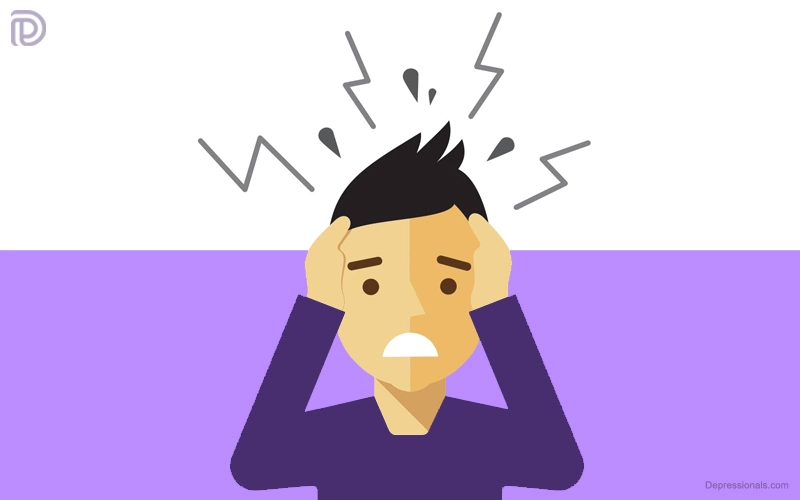What is oppositional defiant disorder (ODD)?
Oppositional defiant disorder (ODD), a behavior disorder characterized by angry moods, defiant or combative behaviors, and vindictiveness toward authority figures, affects children from preschool age. Their behavior disrupts their daily routines, including family time and schoolwork.
There’s nothing unusual about children defying authority once in a while, especially in their “terrible twos” and early teens. Often, they will argue, disobey, or speak back to their parents, teachers or other adults when they are facing defiance. The child may be suffering from ODD when this behavior continues beyond 6 months and is more extreme than what is expected for the child’s age.
ODD occurs in between 2% and 16% of children and teens, according to recent estimates. Boys are more likely to suffer from ODD in their early years. Both boys and girls are equally affected when they are older. Normally, it begins around the age of 8.
ODD is also commonly associated with other behavioral problems, including learning disabilities, mood disorders (such as depression), attention deficit disorder and anxiety disorders. ODD can lead to a more serious problem called conduct disorder.
Read: Kleptomania
Difference between ODD and ADHD
Children with ADHD and oppositional defiant disorder (ODD) are approximately 40% more likely to suffer from a related conduct disorder. It’s important to understand that these two disorders are distinct, although they frequently occur together.
The behavior of an ODD child is related to their interactions with their family, siblings, teachers, and friends as well as their conduct. A person with ADHD is easily distracted, disorganized and excessively restless due to this neurodevelopmental disorder.
Symptoms of oppositional defiant disorder
In children and adolescents
Children and adolescents are most likely to suffer from ODD. There are many signs and symptoms of ODD, including:
- Episodes of anger or frequent temper tantrums
- Not complying with adult requests
- Arguing excessively with adults and authoritative figures
- Rules are constantly being questioned or deliberately disobeyed.
- Behavior implied to irritate, annoy or enrage people, particularly authoritative persons
- Blaming others for their errors or misdeeds
- Becoming easily irritated-vindictiveness
None of these symptoms alone points to ODD. Multiple symptoms must occur continuously for at least six months in order for a diagnosis to be made.
In adults
The signs of ODD in children and adults are quite similar. Adults with ODD may have the following symptoms:
- Being angry at the world
- Being misunderstood or hated
- Strong objection to authority, particularly bosses at work
- Self-identification as a rebel
- Aggressively protecting themselves and refusing to accept feedback
- Blaming others for their blunders
Adults find it challenging to diagnose the disease because many of the symptoms are similar. Symptoms are similar to those seen in antisocial behavior, drug addiction and other illnesses.
Read: Pyromania Disorder
Causes of oppositional defiant disorder
Although there is no known cause for ODD, there are ideas that can help in the identification of possible reasons. ODD is considered to be caused by a mix of environmental, biological and psychological factors. For example, it’s more frequent in families that have a history of attention deficit hyperactivity disorder (ADHD).
According to one theory, ODD can start while children are toddlers because children and adolescents with ODD exhibit behaviors that are similar to those of infants. This idea also implies that the kid or teenager is fighting to become emotionally detached from their parents or other authoritative figures.
It’s also conceivable that ODD develops as a consequence of taught habits, which might be a result of the negative reinforcement tactics used by some authority figures and parents. This is especially true if the youngster is attempting to get attention through negative conduct. In other situations, the kid may imitate a parent’s bad actions.
Other factors to consider are:
- Specific personality qualities, such as being a strong-willed individual
- Lack of a healthy relationship with a parent
- Lots of tension or uncertainty in the household or in everyday life
Criteria to diagnose ODD
Children and adults with ODD can be diagnosed by a qualified psychiatrist or psychologist. The Diagnostic and Statistical Manual of Mental Disorders (DSM-5), specifies three key elements that must be considered when diagnosing ODD:
Read: Intermittent Explosive Disorder
1. They have a consistent pattern of behavior
A person must have a six-month history of angry or irritable emotions, argumentative or rebellious conduct or vindictiveness. They must continue to display four of the following behaviors from any category throughout this period.
Someone who isn’t a sibling must exhibit at least one of these signs. The following are some of the categories and symptoms:
Angry or irritated mood, with symptoms such as:
- Prone to losing their cool
- Being sensitive
- Becoming easily irritated
- Frequently becoming angry or furious
Argumentative or rebellious conduct is characterized by signs such as:
- Having numerous disagreements with adults or authoritative authorities
- Actively resisting authority figures’ requests
- Refusing to cooperate with authority officials’ requests
- Deliberately annoying others
- Blaming others for their misdeeds
Vindictiveness
- Acting hatefully at twice in a six-month time frame
2. Their lives are disrupted
The second thing a professional looks for is if the disruption in behavior is related to discomfort in the person’s immediate social group. Disruptive conduct may have a detrimental impact on essential aspects of their lives, such as their social lives, schooling or career.
Read: Global Developmental Delay
3. It has nothing to do with substance abuse or mental illness
In order to be diagnosed, the behaviors must occur solely during episodes that include:
- Substance abuse
- Depression
- Bipolar disorder
- Psychosis
Severity
A severity scale is also included in the DSM-5. The following are examples of ODD diagnoses:
- Mild: Symptoms are limited to a single location.
- Moderate: At least two settings will have some symptoms.
- Severe: Symptoms must appear in three or more places.
Oppositional defiant disorder treatment
People with ODD should seek therapy as soon as possible. According to the American Academy of Child & Adolescent Psychiatry, teens and adults with untreated ODD have a higher risk of depression and drug addiction. Among the treatment options available are:
Individual cognitive-behavioral therapy: A psychologist will cooperate with the kid to help him or her improve on the following:
- Anger management skills
- Communication skills
- Impulse control
- Ability to solve problems
They could also be able to spot possible contributory variables.
A psychologist will consult with the entire family to help them make adjustments. This can assist parents in locating resources and learning techniques for dealing with their child’s ODD.
Parent-child interaction therapy (PCIT): Therapists will guide parents as they engage with their children. Parents may improve their parenting skills.
Peer groups: A kid can learn how to enhance their social skills and connections with other children by participating in peer groups.
Medications: These can be used to address ODD-related issues including depression or ADHD. However, there is no medicine that can be used to treat ODD.
Read: Immature Personality Disorder
Strategies to manage oppositional defiant disorder
Parents may assist their children in coping with ODD by:
- Positive reinforcements should be increased and reduce negative reinforcements
- Punish poor conduct on a regular basis
- Utilizing parental reactions that are predictable and quick
- Modeling positive household interactions
- lowering the number of environmental or situational triggers (If your child’s disruptive habits tend to worsen when they don’t get enough sleep, make sure they receive enough sleep.)
Adults with ODD can control their symptoms by:
- Acknowledging and accepting responsibility for their acts and behavior
- Mindfulness and deep breathing are being used to keep their fury in check
- Exploring stress-relieving activities like exercise
Read: Developmental Coordination Disorder
What can I do to prevent my child from developing ODD?
It is unclear what causes ODD. However, It is possible to prevent the disorder through certain approaches. Social skills and anger management skills can be taught to young children through early intervention programs. Teens can reduce problem behaviors by getting help with schoolwork, talking therapy (psychotherapy), and learning social skills. Programs based in schools can also facilitate the improvement of relationships among teens and stop bullying.
Programs that teach parents how to manage their children are also essential. Parent-child behavior management is taught in these programs. Discipline is also taught, as well as positive reinforcement methods.
Oppositional defiant disorder in the classroom
Children with ODD provide a challenge to everyone, not just their parents. When a youngster behaves well for his or her parents, he or she may misbehave for the teachers at school. To assist kids with ODD, teachers can utilize the following strategies:
- Be aware that behavior modification strategies that have worked for other children may not work for this one. You may have to inquire the parent what works best.
- Establish clear expectations and guidelines. Post classroom rules in a prominent location.
- Be aware that any change in the classroom environment, such as a fire drill or a change in the schedule of classes, might be unpleasant to a kid with ODD.
- Take responsibility for the child’s behavior.
- By speaking openly and consistently with the learner, you may try to build trust with them.
ODD complications
There can be difficulties at home, in school, or in the personal life of children with ODD. The following may result from ODD:
- Not doing well at school or at work
- Antisocial behavior
- Impulse control problems
- Problems with alcohol or drugs
- Suicide
The following mental health conditions are commonly associated with children with ODD:
- Attention deficit hyperactivity disorder (ADHD)
- Conduct disorder
- Depression
- Anxiety
- Learning disorders
- Communication disorders
ODD prevention
The symptoms of ODD may not be able to be prevented, but by recognizing and acting on them at their earliest onset, parents and children can minimize distress and prevent many of the problems associated with it. Relapse symptoms can also be detected by family members so that they can take the appropriate steps if they appear. It may be helpful to provide a nurturing, supportive, and consistent home environment that allows love and discipline to coexist in order to control symptoms and prevent episodes of defiant behavior.
ODD outlook
It is usually more effective to start treatment early. You should seek mental health care for your child right away if they are showing signs of ODD. The lack of social skills and behavior problems associated with ODD may lead to rejection by classmates and other peers without any treatment. Moreover, children who have ODD are more likely to develop conduct disorders as well.






I am glad for writing to let you know what a brilliant experience my wife’s girl undergone reading through your blog. She came to understand some things, not to mention what it’s like to have a great teaching character to let certain people without hassle know precisely specific complex issues. You really exceeded our own desires. Many thanks for rendering these insightful, healthy, explanatory and also cool guidance on that topic to Lizeth.
I am no longer certain the place you’re getting your information, but good topic. I must spend some time studying more or figuring out more. Thank you for excellent information I was searching for this information for my mission.